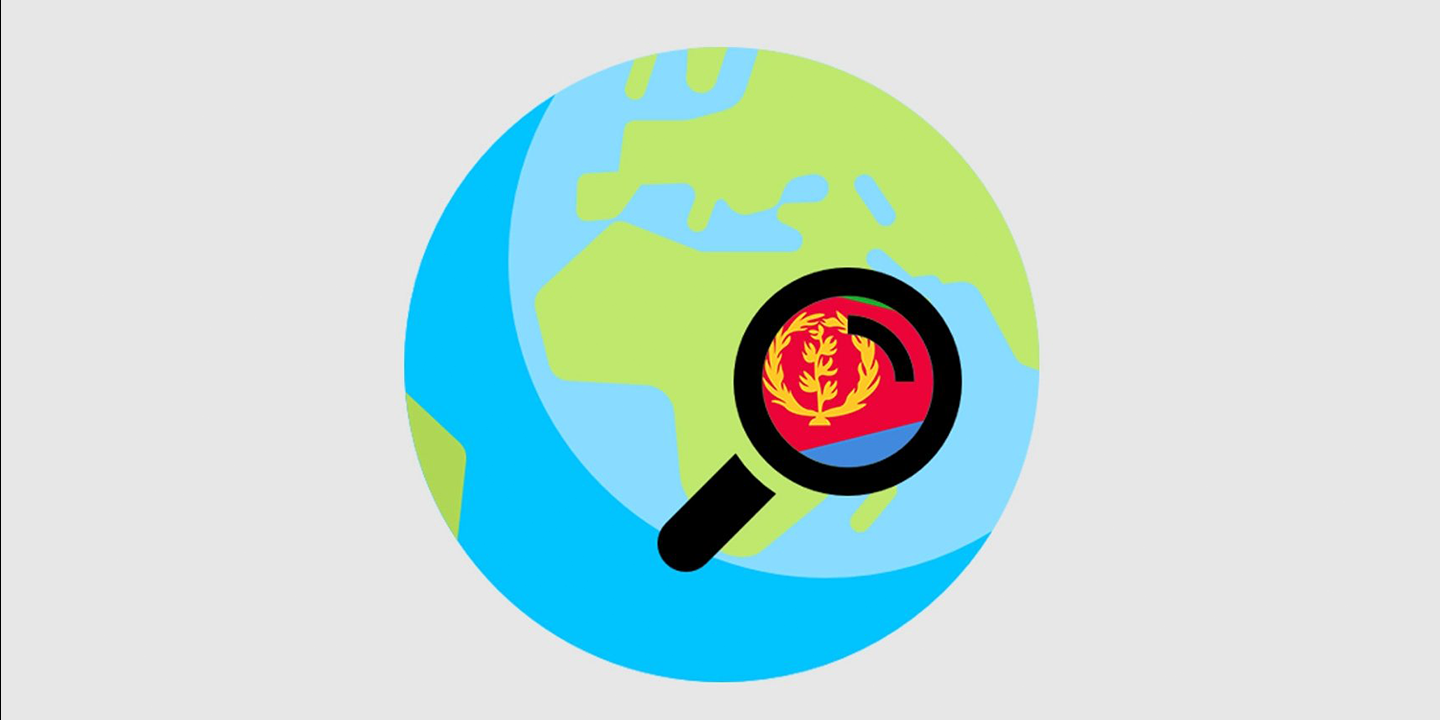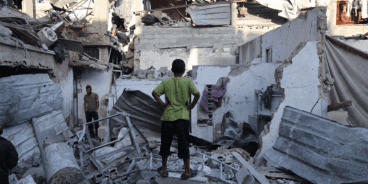

Eritrea: Extend the Special Rapporteur’s mandate through a substantive resolution
To Permanent Representatives of Member and Observer States of the United Nations (UN) Human Rights Council (Geneva, Switzerland)
Excellencies,
Ahead of the UN Human Rights Council’s 56th session (18 June-12 July 2024), we, the undersigned Eritrean, African, and international non-governmental organisations, are writing to urge your delegation to support a resolution that extends the mandate of the Special Rapporteur on the situation of human rights in Eritrea.
Moving beyond a merely “procedural” approach, the resolution should clearly spell out and condemn the ongoing grave human rights violations committed by Eritrean authorities in a context of widespread impunity. As Eritrea is completing its second term as a Council Member, the resolution should also stress the gap between Eritrea’s conduct and membership standards and obligations.
~ ~ ~
Last year, in a letter released ahead of the Council’s 53rd session, a group of civil society organisations stated that the Human Rights Council “should produce a substantive assessment of Eritrea’s human rights situation.” They mentioned the need for Council resolutions to refer to the Special Rapporteur’s “benchmarks for progress” and recommendations by other UN and African bodies and mechanisms, and to include substantive elements addressing violations committed by Eritrean authorities.[1]
They highlighted the following key human rights issues:
- Arbitrary arrests and detentions, including incommunicado detention of journalists and other dissenting voices, some of them since 2001;
- Violations of the rights to a fair trial, access to justice, and due process;
- Enforced disappearances;
- Conscription into the country’s abusive national service system, including conscription for indefinite periods of national service, involving torture, sexual violence against women and girls, and forced labour, as well as government-sponsored roundups of people the Government considers draft evaders or deserters and punishment (in the form of arbitrary detentions and home expulsions) of their family members;
- Severe restrictions on the media and media workers, on the rights to freedoms of opinion and expression, peaceful assembly, association, movement, and non-discrimination, as well as on freedom of religion or belief, leading to a total closure of civic space in the country;
- The 2016 findings (and absence of follow-up action by the Human Rights Council on the findings) of the Commission of Inquiry (COI) on Human Rights in Eritrea that there are “reasonable grounds to believe” that crimes against humanity have been committed in the country since 1991 and that Eritrean officials have committed and continue to commit the crimes of enslavement, imprisonment, enforced disappearance, torture, other inhumane acts, persecution, rape, and murder;
- The fact that no Eritrean official has been held criminally accountable for these crimes and that Eritrea’s human rights situation has not fundamentally changed since the completion of the COI’s work and despite reports by Special Rapporteurs and the Office of the UN High Commissioner for Human Rights (OHCHR);
- Widespread impunity for past and ongoing human rights violations; and
- The Government of Eritrea’s refusal to engage in a serious dialogue with the international community, including by cooperating with the Council, despite its election for two consecutive terms as a Council Member (2019-2021 and 2022-2024).
Despite its obligations as a Council Member, including to “uphold the highest standards in the promotion and protection of human rights” and to “fully cooperate with the Council,” the Government refuses to cooperate with the Special Rapporteur or other special procedure mandate holders. As of May 2024, Eritrea remains among the very few countries that have never received any visit by a special procedure.
Since the last Council resolution on the country, resolution 53/2, was adopted, the African Commission on Human and Peoples’ Rights (ACHPR) adopted Concluding Observations on Eritrea. These Observations follow the review, on 29 October 2023, of Eritrea’s combined 2nd and 3rd Periodic State Report. They outline a long list of concerns and recommendations pertaining to, among others, ratifications, legal reform, non-discrimination, freedom of conscience, Eritreans’ right to participate in public affairs, the right to life, torture, freedom of expression and access to information, freedoms of association and assembly, the rights to housing, work, health and education, and the rights of women.
In its Concluding Observations, the ACHPR also requested Eritrea to “provide information on implementation of the Commission’s recommendations in Communication 275/03 [Article 19 v. Eritrea] which, inter alia, urged the government of Eritrea to release or to bring to a speedy and fair trial the 18 journalists detained since September 2001, and to lift the ban on the press.” In resolutions and decisions it adopted over the last two decades, the ACHPR repeatedly emphasised the need, for the Government of Eritrea, to release detainees and to guarantee, at all times, the right to a fair trial, freedom of opinion and expression, and the right to peaceful assembly. The ACHPR’s calls have remained unheeded.
On 6 May 2024, Eritrea’s fourth Universal Periodic Review (UPR) confirmed the authorities’ failure to implement recommendations from previous cycles, including regarding: cooperation with the UN human rights system, including the Special Rapporteur; implementation of the ratified 1997 Constitution; legal reform; conscription for indefinite periods into the national service; violence against women and girls; torture and ill-treatment; and lack of civic space.
~ ~ ~
Resolutions on Eritrea should fully and accurately reflect the country’s human rights situation. They should provide a framework for discussion about human rights in Eritrea, including the domestic situation and its impact abroad. This includes the severe and far-reaching effects on the diaspora, who often face extraterritorial attacks. These measures are aimed at maintaining control over Eritreans and people of Eritrean origin living abroad, silencing dissent, and discouraging any criticism against the regime.
As 2024 marks ten years since the establishment of the COI on Eritrea, and Eritrea is completing its second consecutive term as a Member of the Council, this year’s resolution should also request the Special Rapporteur to conduct a stocktaking by assessing how Eritrea’s human rights situation evolved during the country’s Membership in the Human Rights Council (2019-2024) and what accountability options and processes are available to address human rights violations and abuses, including those identified by the COI as well those that have taken place subsequent to the COI’s final findings.
The Human Rights Council should pursue its action on Eritrea to date. At its 56th session, it should adopt a resolution that:
- Extends the mandate of the Special Rapporteur on Eritrea;
- Urges Eritrea to cooperate fully with the Special Rapporteur, including by granting him access to the country, in accordance with its obligations as a Council Member;
- Condemns the ongoing grave human rights violations committed by Eritrean authorities in a context of widespread impunity;
- Condemns Eritrea’s failure to abide by the Council’s membership standards and obligations; and
- Requests:
- The High Commissioner and the Special Rapporteur to present updates on human rights in Eritrea at the Council’s 58th session in an enhanced interactive dialogue that also includes the participation of civil society;
- The Special Rapporteur to present a comprehensive written report at the Council’s 59th session and to the General Assembly at its 79th session; and
- The Special Rapporteur to include an assessment, in his next report, of the evolution of Eritrea’s human rights situation during the time of its Membership in the Council and in the context of the ten-year anniversary of the establishment of the COI on Eritrea, stocktaking on accountability options and processes available to address past and ongoing violations.
We thank you for your attention to these pressing issues and stand ready to provide your delegation with further information.
Sincerely,
- AfricanDefenders (Pan-African Human Rights Defenders Network)
- African Initiative of Women Human Rights Defenders (WHRD Initiative)
- African Missions Empowering Network (AMEN)
- Africans for the Horn of Africa (Af4HA)
- The America Team for Displaced Eritreans
- Asian Centre for Human Rights
- Bright Hope
- Burkinabè Human Rights Defenders Coalition (CBDDH)
- CIVICUS
- Committee to Protect Journalists (CPJ)
- Congress of Nations and States (CNS)
- CSW (Christian Solidarity Worldwide)
- DefendDefenders (East and Horn of Africa Human Rights Defenders Project)
- Eritrea Focus
- Eritrean Afar National Congress
- Eritrean Coordination for Human Rights (ECHR)
- Eritrean Movement for Democracy and Human Rights (EMDHR)
- Eritrean Research Institute for Policy & Strategy (ERIPS)
- Ethiopian Human Rights Defenders Center (EHRDC)
- FIDH (International Federation for Human Rights)
- Geneva for Human Rights – Global Training (GHR)
- Global Centre for the Responsibility to Protect (GCR2P)
- Human Rights Concern – Eritrea (HRCE)
- Human Rights Watch
- International Bar Association’s Human Rights Institute (IBAHRI)
- National Integrative Council of Eritreans (NICE)
- National Representative Council of Eritrea-GIE (NRCE-GIE)
- One Day Seyoum
- REDRESS Trust
- Release Eritrea
- World Organisation Against Torture (OMCT)
Related Content


Atrocity Alert No. 455: Israel and the Occupied Palestinian Territory, South Sudan and Ethiopia
